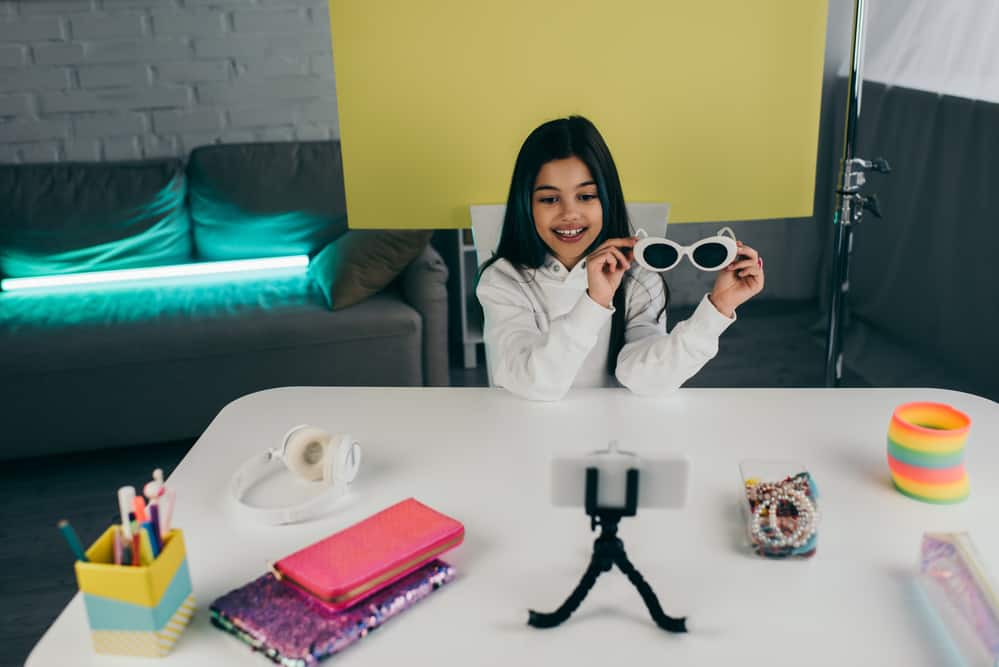
Can you educate yourself on social media? While traditional classrooms and textbooks have long been the pillars of education, the digital age, especially given the rise of AI (like ChatGPT) in early 2023, ushers in a nuanced debate. The use of social media in education, once a fringe concept, is now at the forefront of modern learning methodologies.
It can be easy to dismiss social media as nothing more than a source of entertainment, but the truth is, that it can also be a powerful tool for self-education if you have enough curiosity.
In fact, with the abundance of information available on these platforms, it’s entirely possible to educate yourself on just about any topic you can imagine.
Social media can be a great way to educate yourself and enhance your problem-solving skills. With countless online resources and educational platforms available, you can learn just about anything. The billions of users also mean there is an abundance of information and perspectives you can access.
Going deeper into this post, we’ll explore the transforming landscape where social media platforms extend beyond tools for connection, but also as potential classrooms without walls.
Key Takeaways:
- Social media isn’t just a way to have fun; it can also be a powerful way to educate yourself on a wide range of subjects.
- You can learn more about social media by subscribing to reliable news sources, watching educational videos from reliable sources, following thought leaders in your field, and taking online classes and webinars.
- When getting information from social media, it’s important to employ critical thinking, be smart, and remain skeptical. Not all content is correct or trustworthy, so users should check the facts and think about how reliable the sources are.
- The effects of social media on schooling are not uniform. It gives people access to information, lets them work together, and gives them a place to show their talent, but it can also be a distraction, a way to bully people, and a source of false information.
- For a well-rounded education, consider the benefits of independent reading and balance social media use with other ways to learn, like reading books or attending classes.
To find out how you can make use of the power of social media to educate yourself, feel free to get comfy, and let’s dive in.
Since social media encompasses a vast variety of content through various means and on just about anything, there are just as many ways to leverage this awesome platform for self-learning.
Here are some great ways to use social media to educate yourself:
Subscribe to reputable news outlets to stay informed on important topics.
One effective way to educate yourself using social media is to subscribe to reputable news outlets. This ensures that you receive accurate and trustworthy information on important topics. By following reliable sources, you can stay informed on current events and gain a better understanding of the world around you.
Make sure to choose outlets with a proven track record for factual reporting, and consider subscribing to a variety of perspectives to broaden your understanding of different viewpoints.
These communities allow you to connect with like-minded individuals and experts in your field of interest. By following their discussions and engaging with them, you can gain valuable insights, ask questions, and learn from their experiences.
Additionally, you can stay up to date with the latest trends and developments in your field, and expand your network of contacts. Participating in these groups is a simple yet effective way to broaden your knowledge and deepen your understanding of your passions.
Watch videos and webinars from credible sources.
When looking for quality self-learning material on social media, only subscribe to credible sources or pages. By tuning in to these online resources, you can learn about various topics and gain knowledge on specific subject matters.
Many reputable institutions, organizations, and experts offer such resources, allowing you to access high-quality educational materials right from the comfort of your own home.
With just a few clicks, you can tap into a wealth of educational content that can help you grow and develop in your personal and professional life.
Follow thought leaders and experts in your industry.

These individuals are often at the forefront of innovation and can provide valuable insights and perspectives that you might not otherwise come across.
Understanding the importance of independent learning in the workplace, by following thought leaders, you can learn about new ideas, tools, and techniques that can help you grow and excel in your field.
Additionally, you can connect with these individuals and engage in conversations, which can help you expand your network and gain new opportunities.
Follow educational accounts or channels.
Want to make the most of your time online? Invest in yourself by following educational accounts and channels on social media. These are pages that focus on sharing informative and insightful content about a specific topic.
For instance, if you’re interested in learning about history, you can follow accounts that regularly post engaging historical facts and anecdotes.
Through educational profiles, you’ll be able to easily access a wide range of information that can broaden your knowledge base and help you develop new skills. So, find a few reputable educational accounts or channels that align with your interests and start learning.
Participate in online courses and webinars.
These courses are often created by experts in their respective fields and provide a flexible learning environment that you can access from anywhere. By participating in these courses, you can learn new skills, expand your knowledge base, and connect with other learners from around the world.
Plus, there are even some online courses and webinars that offer a certificate of completion, which you can use to demonstrate your capabilities to potential employers.
Read blogs, articles, and other written materials.
This involves seeking out written content on topics you’re interested in and reading them to gain new knowledge and insights. With the wealth of information available online, it’s easy to find materials that align with your interests, whether it’s learning about a new hobby, exploring a different perspective, or staying up-to-date on current events.
By taking the time to practice independent reading and absorb this content, you can broaden your horizons, challenge your assumptions, and deepen your understanding of the world around you.

Overall, the impact of social media on education is mixed, and it largely depends on how it’s used. Take note, self-learning is a skill that can be honed over time.
When used in moderation and with appropriate safeguards, social media can be a valuable tool for learning and collaboration. However, when used in excess or without proper monitoring, it can have negative effects on academic performance and well-being.
Here are some potential positive and negative effects of social media on education:
Positive effects:
- Access to information: Social media platforms provide a wealth of information that can be helpful to students. This includes educational resources, research articles, and other academic content.
- Collaboration and networking: Social media can facilitate collaboration and networking among students, educators, and professionals. For example, students can join online study groups or connect with peers who share their academic interests.
- Creativity and self-expression: Social media can provide a platform for students to express their ideas and creativity, whether through writing, photography, or video.
Negative effects:
- Distraction: Social media can be a major distraction for students, potentially leading to a decrease in academic performance. It’s all too easy to get sucked into scrolling through social media instead of studying.
- Cyberbullying: Using social media platforms as a tool for cyberbullying can lead to severe emotional and psychological repercussions for students.
- Disinformation and misinformation: Social media platforms have been known to spread false information, which can be detrimental to students who rely on accurate information for their academic work.
Conclusion
It is definitely possible to educate yourself on social media. With the abundance of information and resources available on various social media platforms, users have the opportunity to learn about a vast range of topics and issues.
From self-taught individuals sharing their journeys to educational content provided by experts, social media is a treasure trove of knowledge.
However, it is important to approach social media with a critical eye and discernment. Not all information shared on social media is accurate or reliable, and users should be careful to fact-check information and consider the credibility of the sources. It is also important to balance social media use with other forms of learning, such as reading books, attending classes, or seeking out mentorship and guidance from experts in a given field.
Depending on your preference and the type of self-learning you’re after, social media can be an invaluable resource. However, always approach it with caution, critical thinking, and a willingness to verify information from multiple sources.
Now, reflect on your last scroll through your social media feed. Was it purely recreational, or did you stumble upon a piece of knowledge that made you pause and think? The intertwining of education with social media challenges the conventional wisdom about how and where we learn. Considering the use of social media as a tool for self-education, we must ask: Are we ready to embrace these platforms as legitimate venues for learning, or will we cling to traditional educational paradigms? Your next scroll through LinkedIn or any other social media site could be more educational than you think.
A: Yes, social media has become an integral part of the education system. It can be used as a source of information, a platform for building critical thinking skills, and a way to communicate with students.
A: Educators can use social media to help students, share educational content, create engaging discussions, and provide a platform for collaborative learning.
A: Social media can be used to promote educational institutions, engage with prospective students, and build a social media presence to showcase the benefits of the institution.
A: Social media offers a way to educate others, reach current students, stay updated on trends, and provide a platform for remote learning, especially during the pandemic.
A: Social media serves as a great way to disseminate educational content, connect with experts, bring awareness to important issues, and empower individuals through knowledge sharing.
A: Educators can utilize Facebook groups for discussions, sharing resources, providing updates, and building a community of learners within an educational context.
A: Social media can help students develop critical thinking skills by exposing them to diverse perspectives, encouraging analysis of information, and promoting informed decision-making.
A: Social media channels can serve as a platform for showcasing the offerings of educational institutions, connecting with prospective students globally, and providing easy access to information and resources.
A: Social media has transformed the way educators engage with students, offering direct and informal communication channels, facilitating quick updates, and allowing for personalized interaction with students.
A: Yes, staying informed about social media trends is crucial for educators as it enables them to adapt teaching methods, engage with students effectively, and leverage the latest tools for educational purposes.








